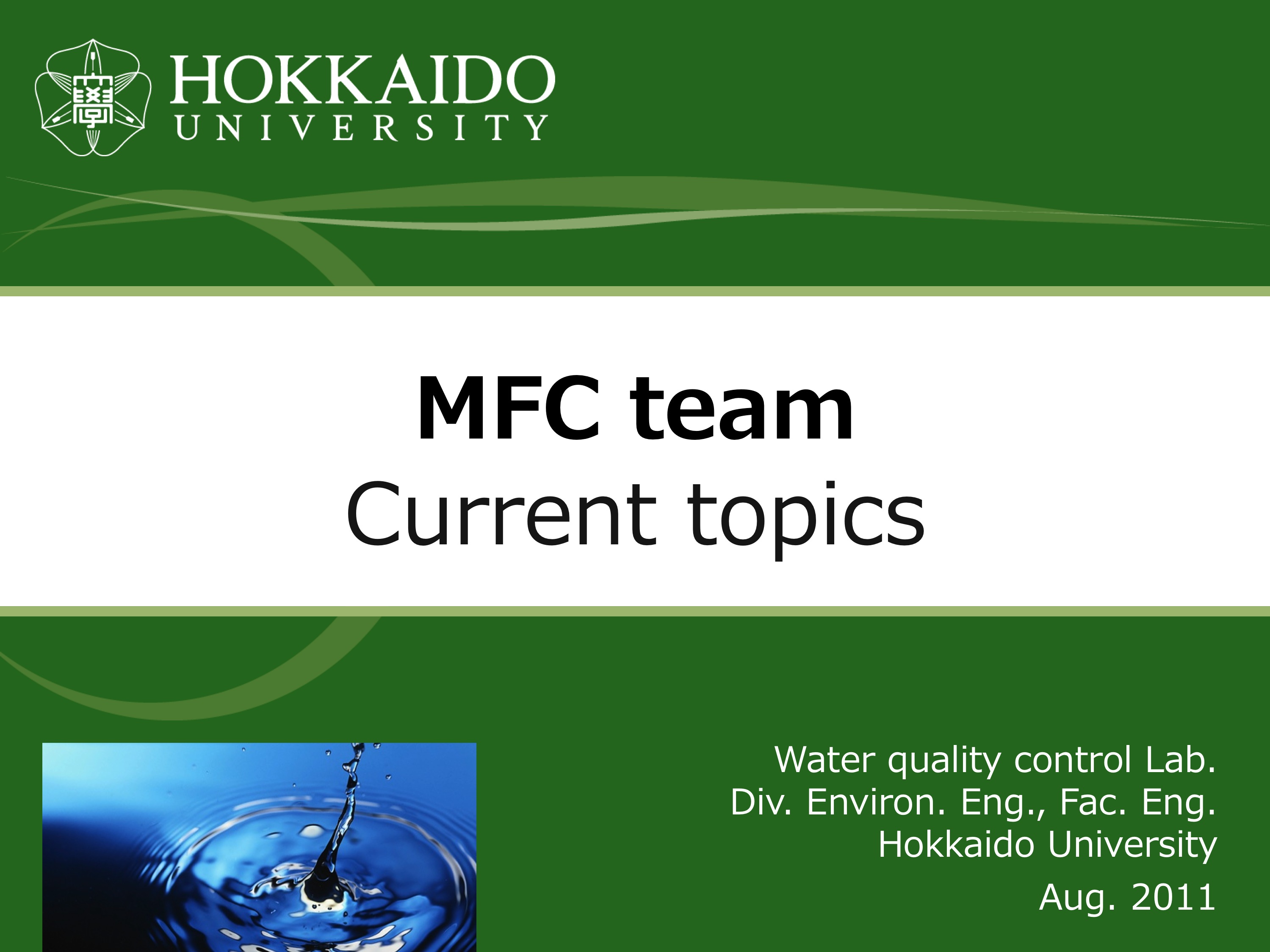Microbial fuel cells (MFCs) are present a promising technology for renewable energy production in specific applications. Basically, the MFC is capable of directly converting metabolic energy of a bio-convertible substrate into electricity. This reactor omits the necessity for gas treatment and reduces of sludge production due to the harvesting of electrical energy. A MFC consists of an anode, a cathode, a proton exchange membrane (PEM) and an electrically external circuit. In the anode of a MFC, no oxygen is present and bacteria need to switch from their natural electron acceptor to an insoluble acceptor, such as the MFC anode. Due to the ability of bacteria to transfer electrons to the anode electrode, we can use a MFC to collect the electrons originating from the microbial metabolism. The electron transfer can be conducted via ① soluble electron shuttles, ② nanowires ③ direct contact (Figure 1). The electrons then flow through an electrical circuit with a load or resistor to the cathode. However, until now, studies are being made to low power generation of an inconvenient form, the electron transfer proceobial fuel cell. In this laboratory, we continuously operate two-chambered MFCs to maximize power generation. Therefore, our objectives are to demonstrate a continuous power generation using two chambered MFCs and to identify key bacteria responsible for power generation on the anode electrode surfaces (anode biofilms) during the operation.
Current research topics
Publications(2009-)
- Domestic wastewater treatment and energy harvesting by serpentine up-flow MFCs equipped with PVDF-based activated carbon air-cathodes and a low voltage booster
Koffi, N.J., Okabe S.
Chemical Engineering Journal, 2020, 380, 122443. - Oxidation of glucose by syntrophic association between Geobacter and hydrogenotrophic methanogens in microbial fuel cell
Oyiwona, G.E., Ogbonna, J., Anyanwu, C.U., Ishizaki, S., Kimura, Z., Okabe, S.
Biotechnology Letters, 39(2), 253-259. - Impact of anodic respiration on biopolymer production and consequent membrane fouling
Ishizaki, S., Terada, K., Miyake, H., Okabe, S.
Environmental Science & Technology, 2016, 50(17), 9515-9523. - External CO2 and water supplies for enhancing electrical power generation of air-cathode microbial fuel cells
Ishizaki, S., Fujiki, I., Sano, D. and Okabe, S.
Environmental Science and Technology, 2014, 48(19), 11204-11210. - Raoultella electricum sp. nov., isolated from anodic biofilms of a glucose-fed microbial fuel cell
Kimura, Z., Chung, K. M., Itoh, H., Hiraishi, A. and Okabe, S.
International Journal of Systematic and Evolutionary Microbiology, 2014, 64(Pt4), 1384-1388. - Hydrogenophaga electricumsp. nov., isolated from anodic biofilms of an acetate-fed microbial fuel cell
Kimura, Z. and Okabe, S.
The Journal of General and Applied Microbiology, 2013, 59(4), 261-266. - Acetate oxidation by syntrophic association between Geobacter sulfurreducens and a hydrogen-utilizing exoelectrogen
Kimura, Z. and Okabe, S.
ISME Journal, 2013, 7(8), 1472-1482. - Effect of formation of biofilms and chemical scale on the cathode electrode on the performance of a continuous two-chamber microbial fuel cell
Chung, K., Fujiki, I., and Okabe, S.
Bioresource Technology, 2011, 102(1), 355-360. - Continuous power generation and microbial community structure of the anode biofilms in a three-stage microbial fuel cell system
Chung, K. and Okabe, S.
Applied Microbiology and Biotechnology, 2009, 83(5), 965-977. - Characterization of electrochemical activity of a strain ISO2-3 phylogenetically related to Aeromonas sp. isolated from a glucose-fed microbial fuel cell
Chung, K. and Okabe, S.
Biotechnology and Bioengineering, 2009,104(5), 901-910.


